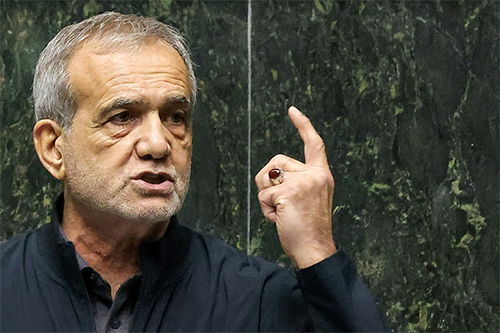
TEHRAN, Sept 11, 2024 (BSS/AFP) - Iran's new president, Masoud Pezeshkian, was due in neighbouring Iraq on Wednesday as he moves to deepen already close ties on his first foreign visit since taking office.
Pezeshkian has vowed to make relations with neighbouring countries a priority as he seeks to ease Iran's international isolation and mitigate the impact of US-led sanctions on its economy.
His visit comes after Western powers on Tuesday announced fresh sanctions on Iran for supplying Russia with short-range missiles for use against Ukraine.
It also comes amid turmoil in the Middle East sparked by the war in Gaza, which has drawn in Iran-backed armed groups around the region and complicated Baghdad's ties with Washington.
On Tuesday night, an explosion was heard at a US-led anti-jihadist coalition's base at the Baghdad international airport, according to Iraqi security officials.
A spokesperson for the Iranian-backed Ketaeb Hezbollah (Hezbollah Brigades) in Iraq said the Tuesday night "attack" aimed to "disrupt the Iranian president's visit to Baghdad".
Ties between Iran and Iraq, both Shiite-majority countries, have grown closer since the US-led invasion of 2003 toppled the Sunni-dominated regime of Iraqi dictator Saddam Hussein.
"This trip will be an opportunity to promote and deepen the friendly and brotherly relations between the two countries in various fields," Iran's foreign ministry spokesman Nasser Kanani said this week.
Pezeshkian has directly linked shoring up ties to sanctions pressure.
"Relations with neighbouring countries... can neutralise a significant amount of pressure of the sanctions," he said last month.
Iran has suffered years of crippling Western sanctions, especially after its arch-foe the United States, under then-president Donald Trump, unilaterally abandoned a landmark nuclear deal between the Islamic republic and major powers in 2018.
Pezeshkian, who assumed the presidency in late July, has made the top diplomat who negotiated the 2015 deal, Mohammad Javad Zarif, his vice president for strategic affairs as part of his bid for a more open Iran.